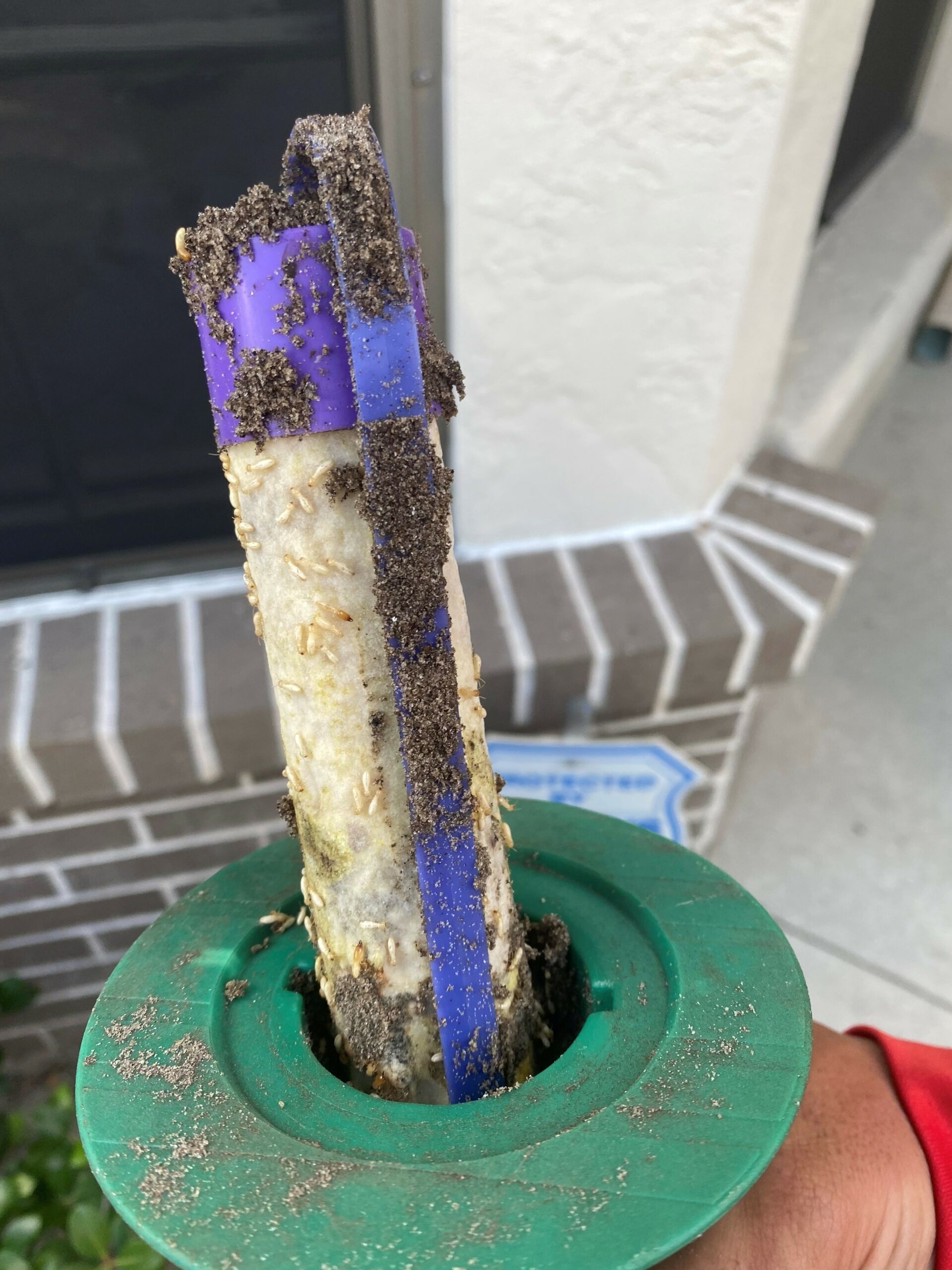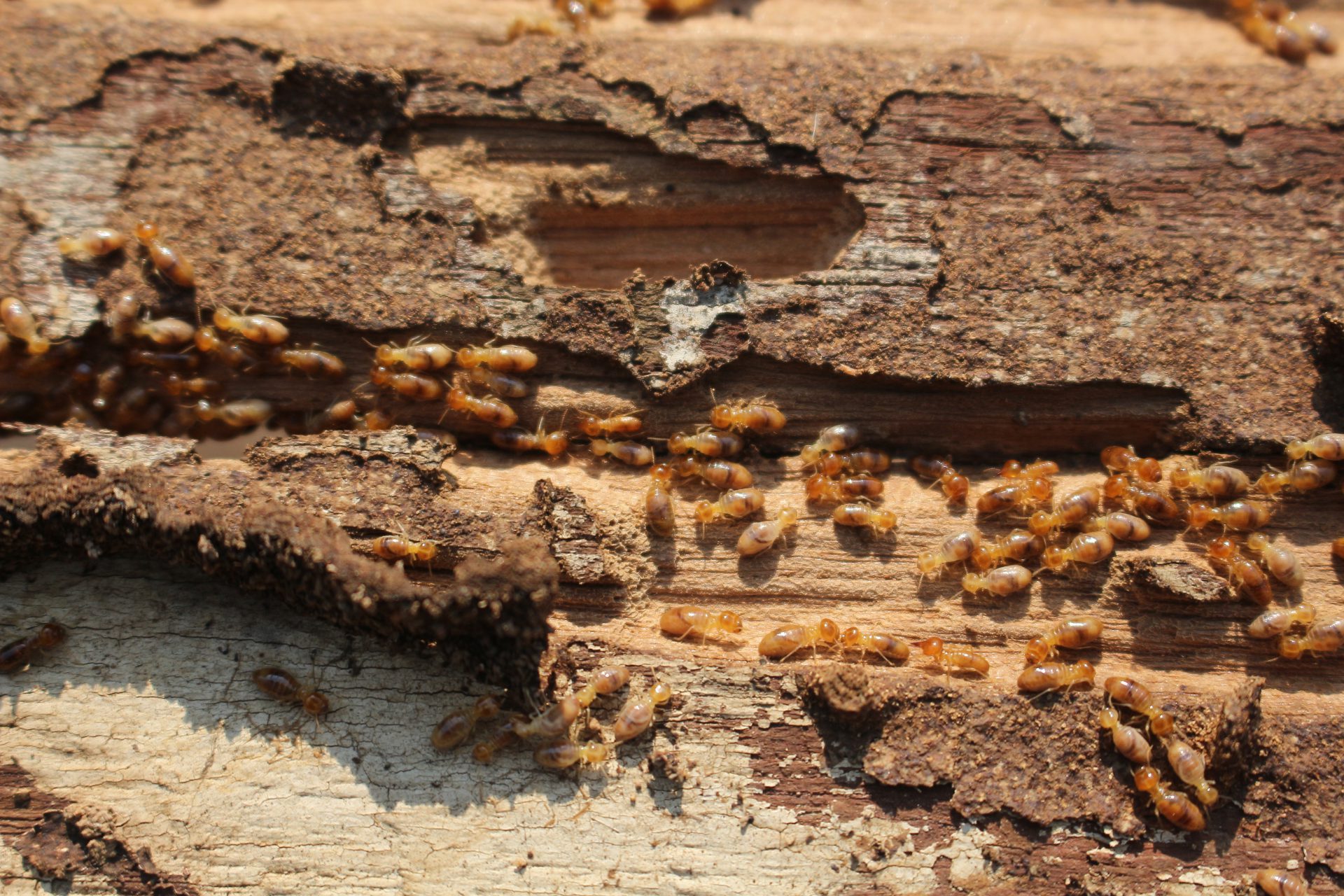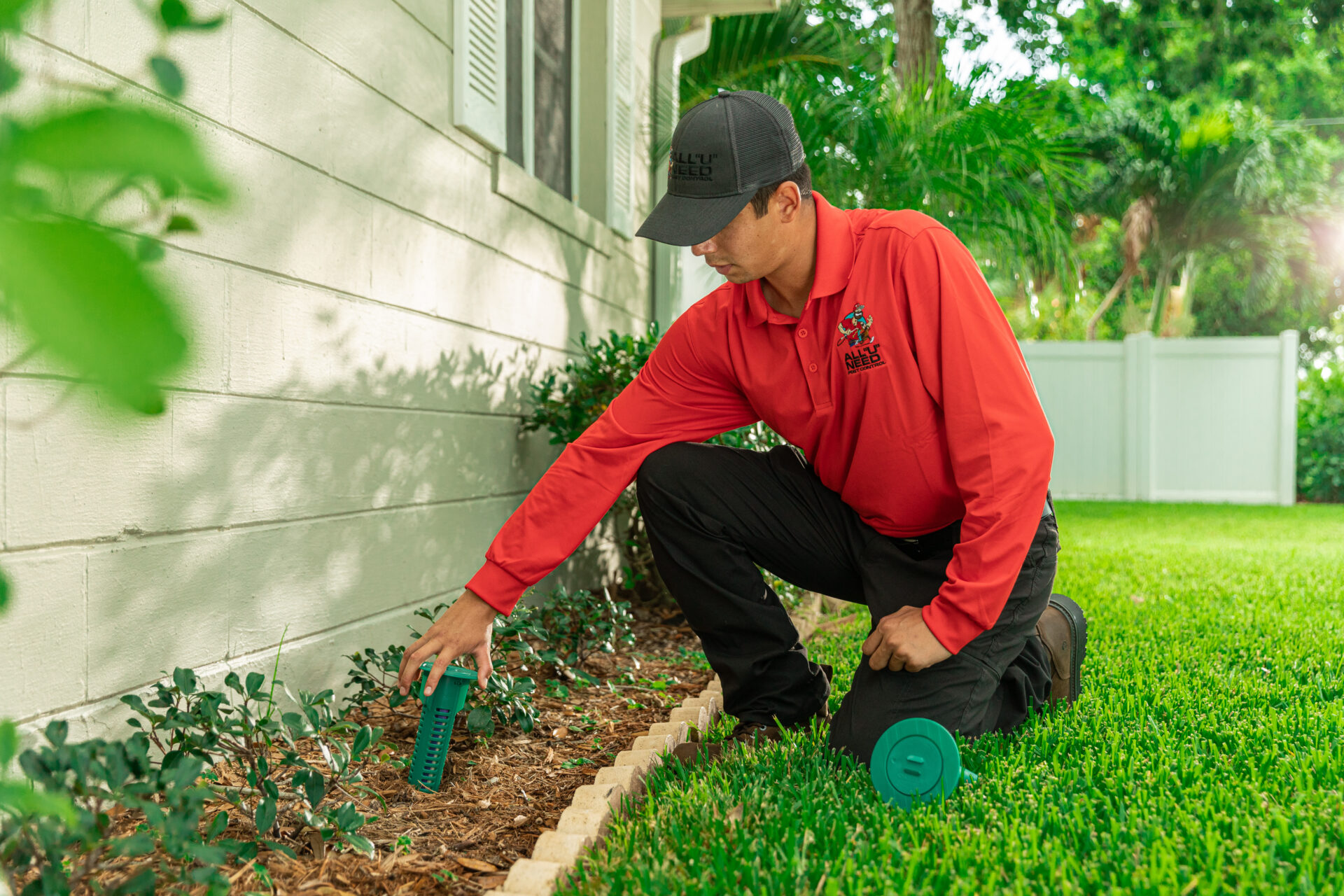Termites — tiny pests with big appetites
Why termite treatment should be on your pest control menu
Usually less than a half-inch in length, termites are tiny insects with huge appetites. They feed on cellulose, an organic compound found in plants, plant byproducts, cotton fibers, paper products, and wood. They live in colonies, containing as few as several hundred to as many as a million termites, depending on the species. A well-organized subterranean termite colony can consume over 100 pounds of wood per year! Termites work around the clock (they never sleep), and a single queen can lay up to four eggs per minute, so once a colony has established itself in your home, structural damage could happen quickly. According to the National Pest Management Association, termites cause over $5 billion in property damage annually, a cost not covered by most homeowners insurance plans. So, it pays to start termite treatment as soon as possible.


Signs that you need to add termite treatment to your pest control program
Stop them in their tracks
Because they are so small, and spend most of their lives underground, subterranean termites can be hard to spot. To reach the wood in your home from their nests in the ground, subterranean termites build mud tubes. These tubes are often the first sign that you have a termite infestation. You may also see piles of discarded wings near your home’s access points. These are left behind when termites swarm out of their nest to mate and find a place to start a new colony. Blisters in wood flooring and hollowed or damaged wood are evidence of termites feeding behind the scenes. Droppings resembling sawdust or coffee grounds are another sign that termites are active in your home. Because drywood termites nest inside of wood, you won’t find mud tubes indicating their presence. If you see any of these signs, call All “U” Need Pest Control immediately to start termite treatment.

When termites attack…you need to fight back with serious pest control
Bait them to eliminate them
Florida’s sub-tropical climate makes it a hotbed for termite activity, which is why you need to protect your home from termites. Routine termite treatment attempts a blocking method — applying up to hundreds of gallons of insecticide into the soil to create a barrier around the home to either repel or kill termites as they try to get to the wood in the home. The better way to protect your home is to eliminate the termite problem altogether by using a baiting system.
All you need is a Sentricon® System with Always Active™ technology. The Sentricon System enlists the foraging “worker” termites to carry bait material back to the termite colony as food for their nestmates. Termites discover the bait, feed on it, and then deliver its slow-acting chemistry to the termite colony. The active ingredient in the bait, noviflumuron, disrupts termite molting, thereby eliminating the entire termite colony, including the termite queen, who can produce millions of termites over her life span. A series of Sentricon System stations, usually placed about 10 feet apart around the perimeter of your home, contain enough bait to control multiple termite colonies.
In side-by-side tests where termites could choose between wood and the new revolutionary bait, termites preferred the bait 14 times more than wood! And better yet, termites like the bait even more as it ages, cracks, and gets moldy.
Sentricon® System stations are serviced at least once per year, and any bait device that is more than one-third consumed is replaced with a new one. This termite treatment provides continual protection for your home.
The Sentricon® System
The stand-alone termite solution
Your best pest control defense is a good offense
A few strategic moves for termite prevention
Installing and maintaining a Sentricon® System and having your home inspected on a regular basis as part of a customized pest control plan are your best tactics for termite treatment and termite prevention in Florida. You can take a few more steps to make your home less appealing to termites, such as:
- Keep landscaping plants trimmed away from your home
- Don’t let mulch meet your home’s foundation
- Store firewood away from your home
- Quickly repair any leaking faucets or other sources of moisture buildup in or around your home

If they’re not dead, we’re not done!